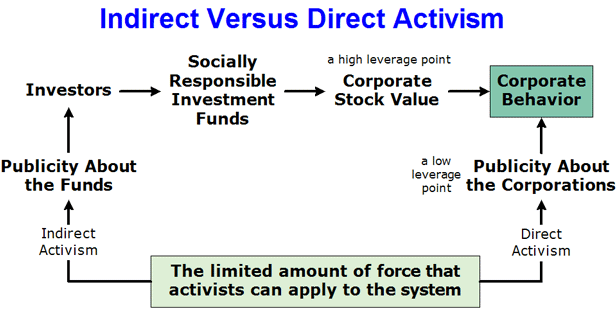Socially Responsible Investing INVESTING FOR A CAUSE
Post on: 16 Март, 2015 No Comment

UBS Financial Services Inc.
A growing number of people are investing to achieve change in the future of their communities, the environment and the world. Socially responsible investing (SRI) assets rose more than 324 percent from $639 billion in 1995 to $2.71 trillion in 2007 while total assets under professional management in the US grew less than 260 percent during the same period from $7 trillion to $25.1 trillion; thus, SRI now represents 11% of the total.*
The strategies that define SRI are:
Screening -includes or excludes securities from a portfolio based on social or environmental criteria. Positive screening attempts to identify profitable companies with a history of excellent employee relations, community involvement, environmentally conscious policies/practices, respect for human rights, and safe products. Negative screening identifies companies with poor records in these areas and excludes them from portfolios.
Shareholder advocacy -invests in companies with poor social or environmental records and actively works with company’s management to improve practices, encouraging management to exercise good corporate citizenship and promote long-term shareholder value and financial performance. Thanks to socially responsible investing advocacy, shareholder resolutions implemented on social and environmental issues increased from 299 proposals in 2003 to 367 in 2007.*
Community Investing -provides investment capital to communities not served or underserved by traditional financial institutions and gives these communities direct access to credit, equity, capital and basic banking products they would otherwise lack.
SRI is one of the fastest growing types of asset management due to:
Performance. Research shows that, when properly managed, risk-adjusted and controlled for investment style, socially screened portfolios perform comparably to their unscreened peers.* However, past performance is not an indication of future results.
Information. Investors can easily access a wealth of information about SRI and become better educated about social and environmental issues.
Corporate scandals. Accounting fraud and other issues have eroded trust in company leadership. This has resulted in calls for greater transparency, disclosure of information, and stricter corporate governance and accountability.
Sustainability. As the general public’s concerns about global warming, alternative energy sources, human rights, corporate scandals, and other issues grow, new and expanded opportunities will be offered to investors.
For more information, please contact Hector Garcia, Financial Advisor with UBS Financial Services Inc. at hector.garcia@ubs.com or 612 ‑ 371-5112.
Source: Social Investment Forum, Report on Responsible Investing Trends in the U.S. 2005 & 2007














